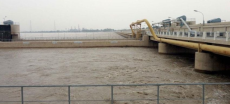[vc_row][vc_column][vc_column_text dp_text_size=”size-4″]Pakistani households may face another financial setback as the Oil and Gas Regulatory Authority (OGRA) proposes a new gas price increase. Following a significant 172% surge in November, OGRA Chairman Masroor Khan, citing depleting domestic gas reserves and the need for costly Liquefied Natural Gas (RLNG) imports, seeks government approval for the hike. Sui Northern Gas Pipelines Limited (SNGPL) compounds the issue, requesting a substantial 131% price increase.
The proposed hike would impact monthly gas bills, with consumption slabs from 25 to 400 cubic meters seeing a 50% to 100% rise. For users above 400 cubic meters, the unit price would climb from Rs 3100 to Rs 4000 per MMBTU. Fixed charges for protected consumers (using less than 25 cubic meters) remain unchanged, but other slabs face notable increases.
Read more : Interim Govt Increases Gas Prices in Emergency Meeting
Dwindling gas reserves prompt this move, with OGRA noting a production shortfall against demand for over a decade. Expensive RLNG imports, coupled with global gas price hikes, compel the government to address the financial gap.
The November price hike aimed to counter losses faced by gas suppliers, reaching Rs 879 billion from Rs 18 billion annually. OGRA claims the increase prevents further circular debt buildup in the petroleum sector.
A hearing allowed stakeholders to voice their views, with Chairman OGRA planning another session in Peshawar before forwarding recommendations to the government. Khan indicates the global trend of rising gas prices, suggesting further local increases.
Caretaker Energy Minister Muhammad Ali justified the initial hike, citing inadequate gas production versus demand. The increased reliance on imported gas due to this gap and the substantial cost difference between domestic and imported gas strained gas suppliers, leading to the adjustment. Ali emphasized the positive impact, averting an estimated Rs 400 billion annual loss and reducing circular debt within the petroleum sector.[/vc_column_text][/vc_column][/vc_row]











